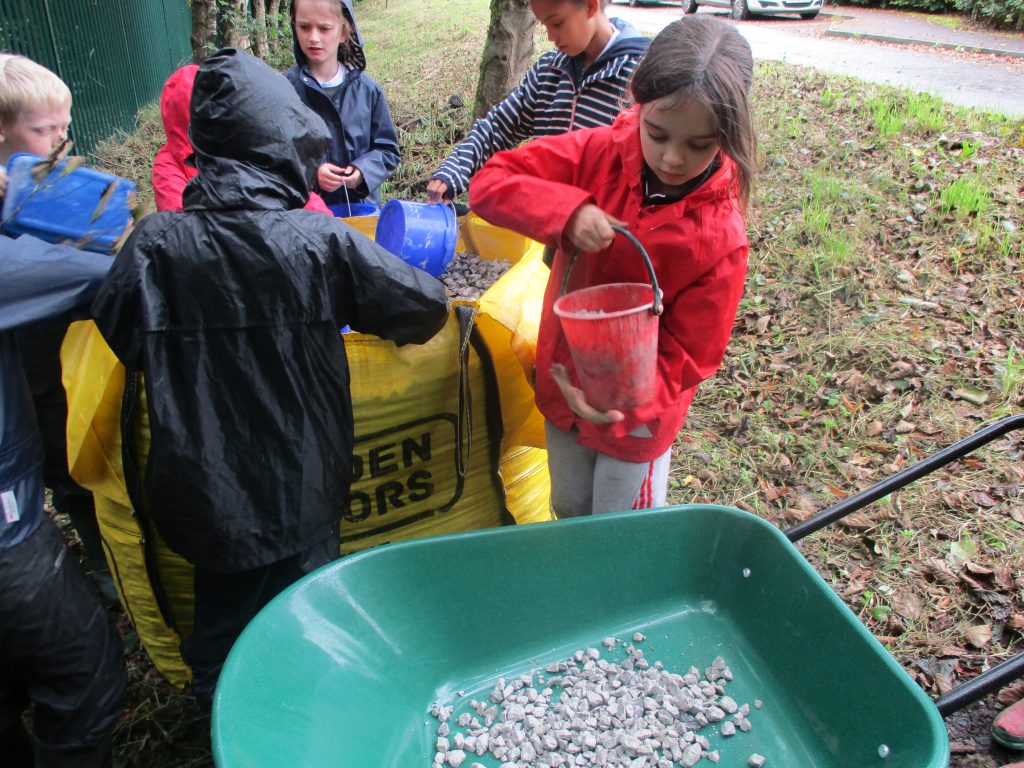



As such the most up to date information (including policies) can be found at School admissions – Lancashire County Council
The online admissions system for children starting school in September 2022 will be open from 1 September 2022 and will close on 15th January 2023.
Admissions Criteria
If there are more applications than places available, then for all community and voluntary controlled primary schools in Lancashire the following admissions criteria is used to decide who has priority for admission. Determined admission arrangements 2022-23 – Lancashire County Council
If you would like to visit us at any point during the school year, please contact the school office on 01706 215893, who will be happy to arrange a visit for you.If you have any questions about admissions to St Paul’s Primary School please do not hesitate to get in touch.
In year admissions
Before you apply to change schools, you will need to speak to the current school and the school you intend to move to.
How to apply
The different types of schools and academies have different admission arrangements.
Follow the link below for how to apply for St Paul’s school:
- Community and voluntary controlled schools – Lancashire County Council co-ordinates in-year admissions for these schools.
You should not use this process if you are applying for
- a school which is in another local authority area, such as Blackpool or Blackburn with Darwen Borough Council – please contact them directly
- a child who has an education, health and care (EHC) plan – please contact the Inclusion Service for guidance
- a Looked After Child – please apply directly through the local area education office
After you apply
Your application will be processed by the local area education office inline with the Admissions Code and fair access policy.
They will acknowledge receipt of your application and then write to you with the outcome within a maximum of 15 school days (this does not include weekends or school holidays).
The Pupil Access Team privacy notice tells you how we process personal data.
Receiving a school offer
If the school you request has places, your child will be offered a place at the school and you will receive your offer letter via email. You must contact the school within 5 school days of the offer date to arrange school admission. The expectation is that the child will be admitted to the school within 15 school days after the school offer notification.
If the school you request doesn’t have any places, you will be notified via email to contact the area office to be advised of local availability. You also have the right to appeal against the refusal of a place in current Reception class to current Year 11.
Children already attending a local school
Where a child is already on roll at a local school, they must continue to attend until the date of admission to the new school.
Appeals
If you are unhappy with your school offer you can appeal for any schools which at that time have no available places. Information and advice is available from the admissions team at your local area education office.
We advise you to visit the school you are offered before you go to appeal.
What to consider
Choosing your school preferences
When applying for admission to Lancashire schools you have the right to express more than one preference.
You should list your school preferences in priority order when you apply.
Research schools in your area (you can gain information from the school website and Ofsted reports).
If you need information to help with your application you can contact your local area education office for advice.
Available places
To find out whether a school has a place available, you can either contact your local area education office for community or voluntary controlled schools, or contact the school directly for schools co-ordinating their own admissions.
Application address
A child’s permanent address is one where they normally, live, sleep and go to school from. Proof of residence may be requested at any time throughout the admissions process. Addresses of relatives or friends must not be used and neither should addresses of any other properties owned by applicants. For further information please see the residency for school admissions page.
If your child is unhappy in their current school
If your child is unhappy in their current school for whatever reason, for example alleged bullying or not getting on with a teacher, you should first contact the headteacher and discuss the problems before changing schools.
It is important that you consider whether a move is really the best option. School transfer is very disruptive for any child and it is not encouraged if the problem can be resolved by the school.
If this matter cannot be resolved, the standard in year admissions procedure will apply.
What to think about if you are considering a change of school
Moving to a new school is an important step for all children.
If you have moved house it may be essential to move your child, however, if a school move is not absolutely essential you should carefully consider the implications for your child.
Some of the things which you must think about if you are considering a change of school for your child are:
Behaviour
It can be helpful for a child who is presenting challenging behaviour to move to a new school. However, this is normally only where the behaviour is linked to the existing school. If strategies to help a child have already been put in place these can be disrupted by a school move. This can lead to further difficulties.
It is usually better for the child if the family work with the existing school to help to address and resolve any difficulties.
If your child does move schools to address challenging behaviour, they may stay on the roll of their old school for an interim period. If the change of schools is not successful they would go back to their old school.
Peer group / friends
If there are difficulties consider if these would be resolved by a school move?
There could be similar issues, even in a new school. It is often better to work with the existing school to address matters. Moving a child away from an established peer group may adversely affect achievement.
